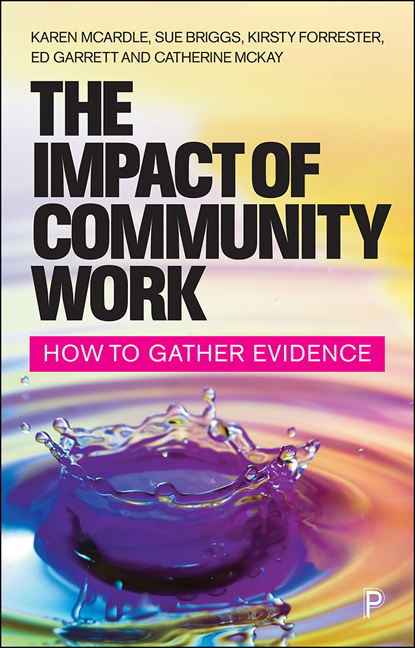5 - Planning and Evaluating
Published online by Cambridge University Press: 10 March 2021
Summary
Introduction
This book is not simply about evaluation. It is much broader than this, as we have already described in Part I. It is primarily about gathering evidence of impact, but you are very likely to encounter evaluation; to want to undertake evaluation; and to learn from what you find out. Chapter 15, on self-evaluation, will contribute to this and should be read in conjunction with this chapter. Evaluation, like presentation of findings, should be a part of your planning process. This chapter considers planning in an evaluation context and also considers mixed methods of gathering data or evidence. It tackles a particularly common form of evaluation, which is the cost– benefit analysis of a project or service, and considers the benefits of radical research, a slight change from the usual approaches to evaluation.
Evaluation
Evaluation research or evaluation is a distinctive type of formal research, so is at the far right-hand side of the evidence continuum (see Figure 1.1). There are many competing definitions and understandings of evaluation. Terminology is used very loosely. Sometimes it is used as a noun, so a questionnaire is termed an evaluation. This, we propose, is an incorrect use of the term. Stuart and colleagues (2015) describe evaluation as a specific form of research that ascertains the number, amount, value, quality or importance of programmes. These features are also clearly embedded in our concept of impact. The primary purpose of evaluation is not to acquire new knowledge but to study the effectiveness with which existing knowledge is used to guide practical action (Clarke, 1999) and this is the definition we choose to use. Formal evaluation involves engaging with all stakeholders in a project. It is frequently externally conducted, although the degree of formality may vary. Any evaluation you conduct will be framed as research, which means having research questions that describe what you want to find out; having a relevant and appropriate methodology, including sample; applying ethical standards; ensuring validity; and analysing and interpreting your findings. This is not a book about how to do research, but you will find all the aforementioned elements covered in the different chapters in this section of the book.
- Type
- Chapter
- Information
- The Impact of Community WorkHow to Gather Evidence, pp. 85 - 104Publisher: Bristol University PressPrint publication year: 2020

